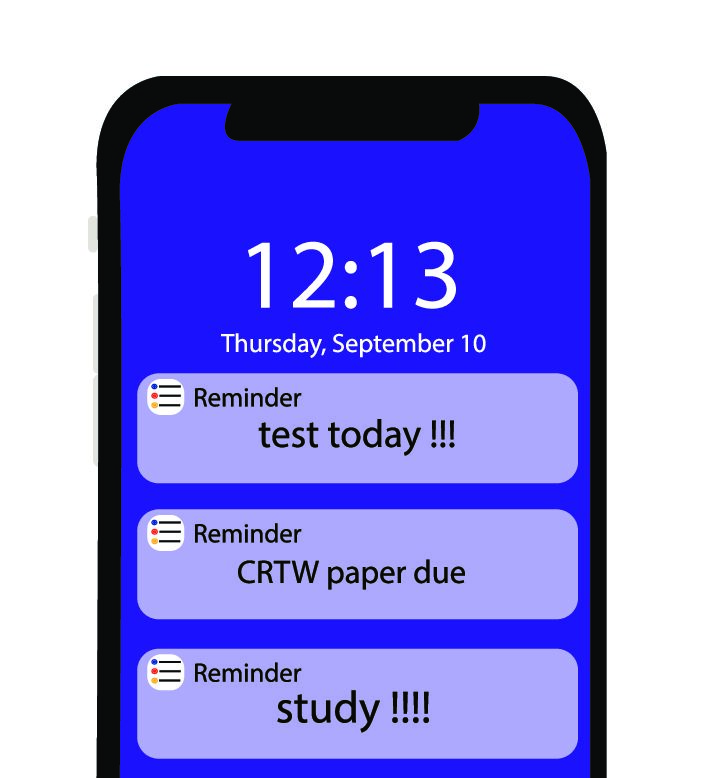Before quarantine, the promise of working from home would have been a rare blessing.
Yet when a day off turns into a semester off and going to class turns out to be opening up Zoom in pajamas, cabin fever can set in. Music and other types of audio entertainment can be a great way to keep your mind busy during a moment of spare time, or to keep focused while studying. Here’s a brief guide to help choose what to listen to.
- Know what you like and what kind of work you’re doing.
As it turns out, according to a study mentioned in an article on Edutopia, when it came to the test subjects’ choice of tunes’ effect on their work, “it wasn’t anything to do with classical music or Mozart, it was to do on whether you liked [listening to] something or not”. So if you really don’t like that song on the station, or you just can’t get into that classical music playlist, it’s worth taking a second to find something else. Having lyrics in the music inhibits productivity when reading or writing, so instrumental music is the way to go in these scenarios.
Tongue drums, kalimbas, harps and viola are wonderful places to start when looking for instrumental music. Tongue drums and kalimbas in particular are used during meditation sessions and during yoga instruction because of their soothing sound. Tibetan singing bowls are also a good choice – they were created specifically to aid relaxation and meditation.
What this insight means is that finding something slow and sedate isn’t nearly as important as choosing songs without lyrics.
- Select tracks that will last you a while.
While finding a random playlist on Spotify or letting YouTube cycle through the “Recommended for You” section can be great for a long drive, it’s not as fun — or effective — for studying or doing work. Advertisements can interrupt the pace of work in order to skip past them and playlists algorithms are random at best. The change of tempo and genre from song to song can be refreshing, but it can make it harder to stay focused.
Finding an album or making a playlist you like with longer songs from the same genre can help boost focus and productivity. Some great places to start would be scores for movies or video games, or instrumental songs all by the same artist. A study published in Learning and Individual Differences has proven that classical music can increase dopamine levels while decreasing anxiety, making studying easier.
The study also concluded that classical music makes students more receptive to information, leading to higher exam scores. When comparing test scores, studying while listening to classical music helped French students “significantly higher” than their classmates who did not listen to music. The important thing to remember is that lyrics in music can hinder studying abilities, so instrumental music is key.
It is also important to remember that “classical music” is a broad genre which spans centuries. While it’s easy to search for “classical music for studying”, those playlists are not tailored for specific student needs. Every learner is different, so those composers may hinder instead of help your studying.
Can’t find a specific composer or time period that does the trick? Research studies that show the benefits of listening to classical music while studying have used Handel, Bach, Beethoven, Mozart, Chopin, Brahms, Tchaikovsky, Strauss and Debussy.
- Look in new places, even ones that feel a little strange or different.
Even though they might seem strange from the outside, fringe genres like lo-fi, binaural, throat singing, Autonomous Sensory Meridian Response and others have a cult following for good reason. YouTube channel @chilledcow has garnered over six million subscribers with several famous 24/7 live hip hop playlists, with many followers claiming to be comforted by the channel’s always-available chill beats. When you’re in downtime, listening to podcasts and audiobooks may seem boring, but they’re a really great way to occupy your brain and there are a plethora of varieties to choose from.
Podcasts can also be a great option, letting you listen to any kind of discussion or storytelling from people of all walks of life. Most podcasts upload on a regular schedule, so there are limitless chances to listen. Podcast networks such as Maximum Fun have a wide variety of genres to choose from, and their streaming services are free.
Many libraries have a wide selection of audiobooks to check out and enjoy, which can be played in a laptop or CD player. Libraries also partner with OverDrive to provide e-books and online audiobooks to readers — all students need is Internet access and a library account.
Keep an open mind and remember these tips to find the soundtrack to the fall semester of 2020.
Graphic by Lizzy Talbert




